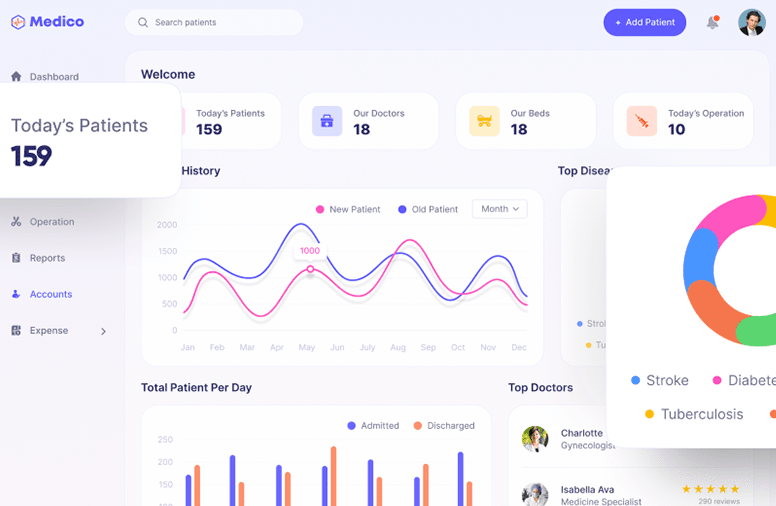Hospital Management & Administration Features

Intelligent Patient Scheduling & Resource Allocation
AI can optimize appointment scheduling by analyzing patient flow, staff availability, and treatment durations.
Automated Medical Billing & Claims Processing
AI can accurately process patient billing and insurance claims by extracting data from clinical records, validating codes, and detecting anomalies.
Staff Scheduling & Workforce Management
AI tools analyze historical data, employee preferences, and hospital demands to generate efficient shift schedules.
AI Chatbots for Administrative Support
AI chatbots handle routine patient inquiries, appointment confirmations, billing questions, and document submission.
Predictive Maintenance of Medical Equipment
AI systems monitor usage patterns and sensor data to predict equipment failure before it occurs, ensuring high availability and minimizing downtime.
Operational Analytics & Decision Support
AI-powered dashboards provide hospital administrators with real-time insights into operations such as bed occupancy rates, supply chain needs, or patient admission trends.

